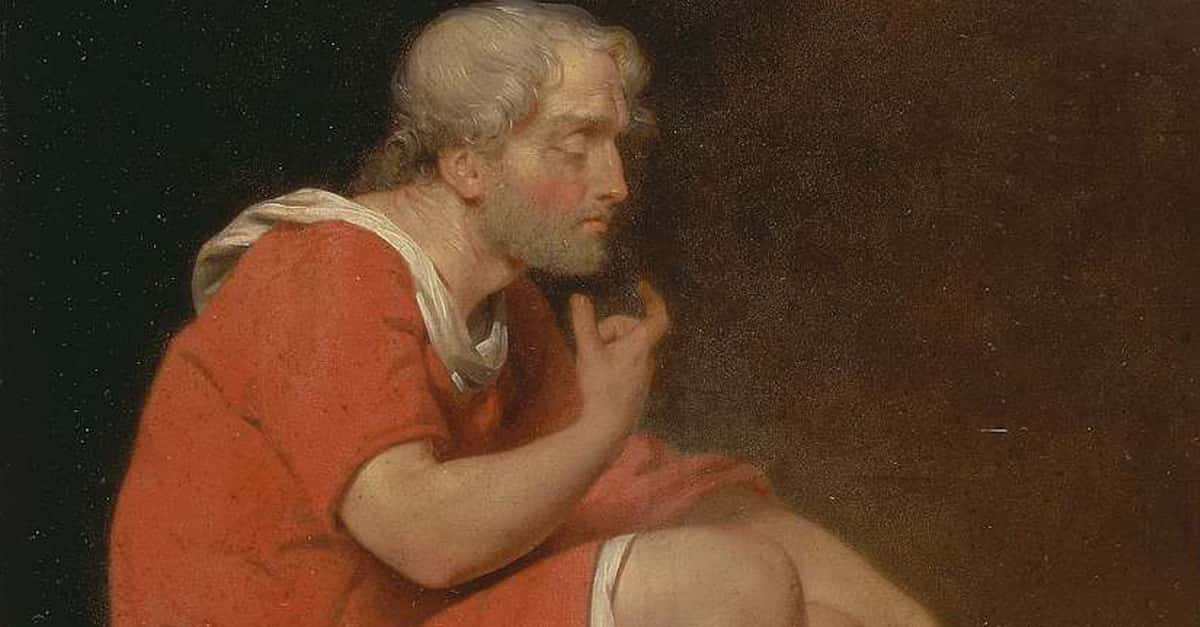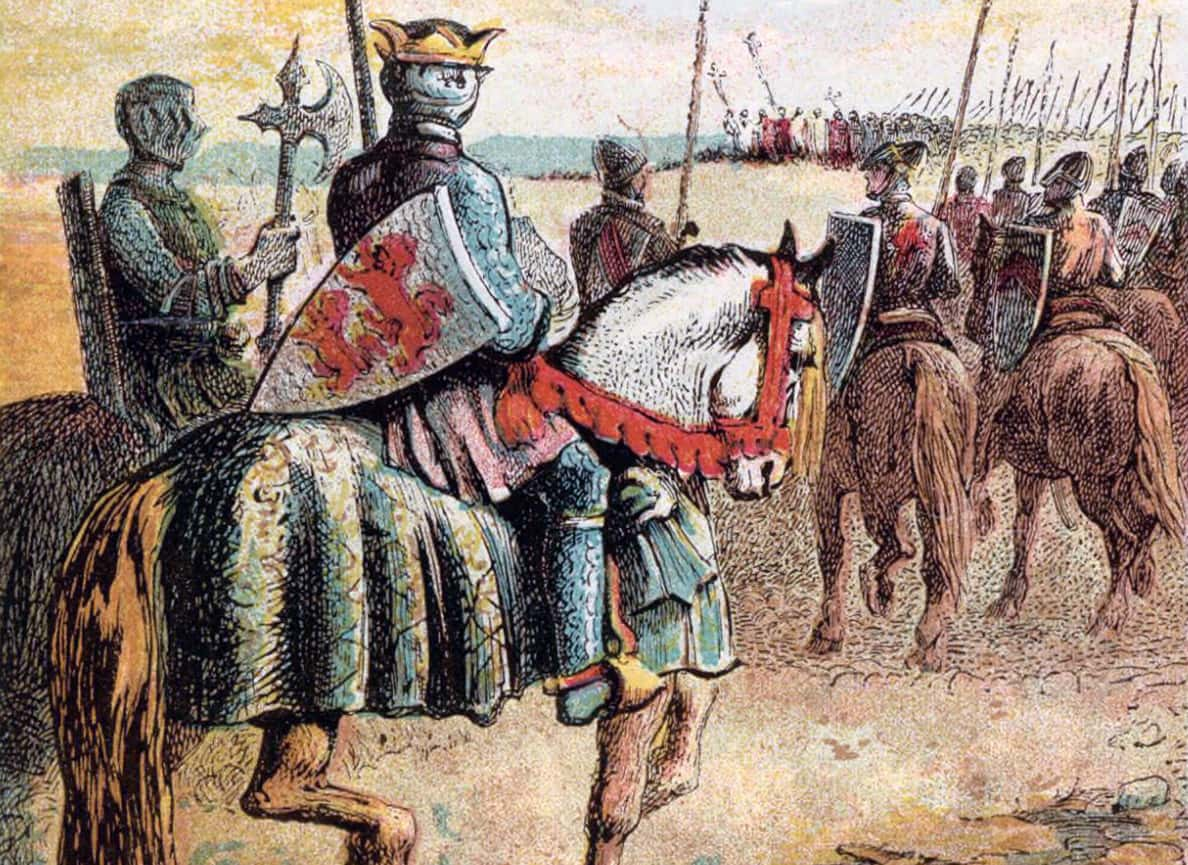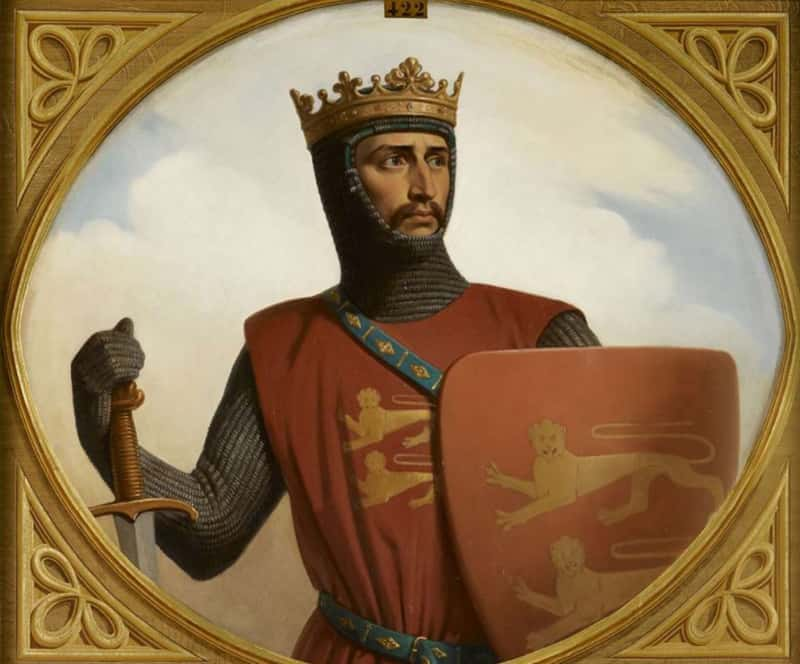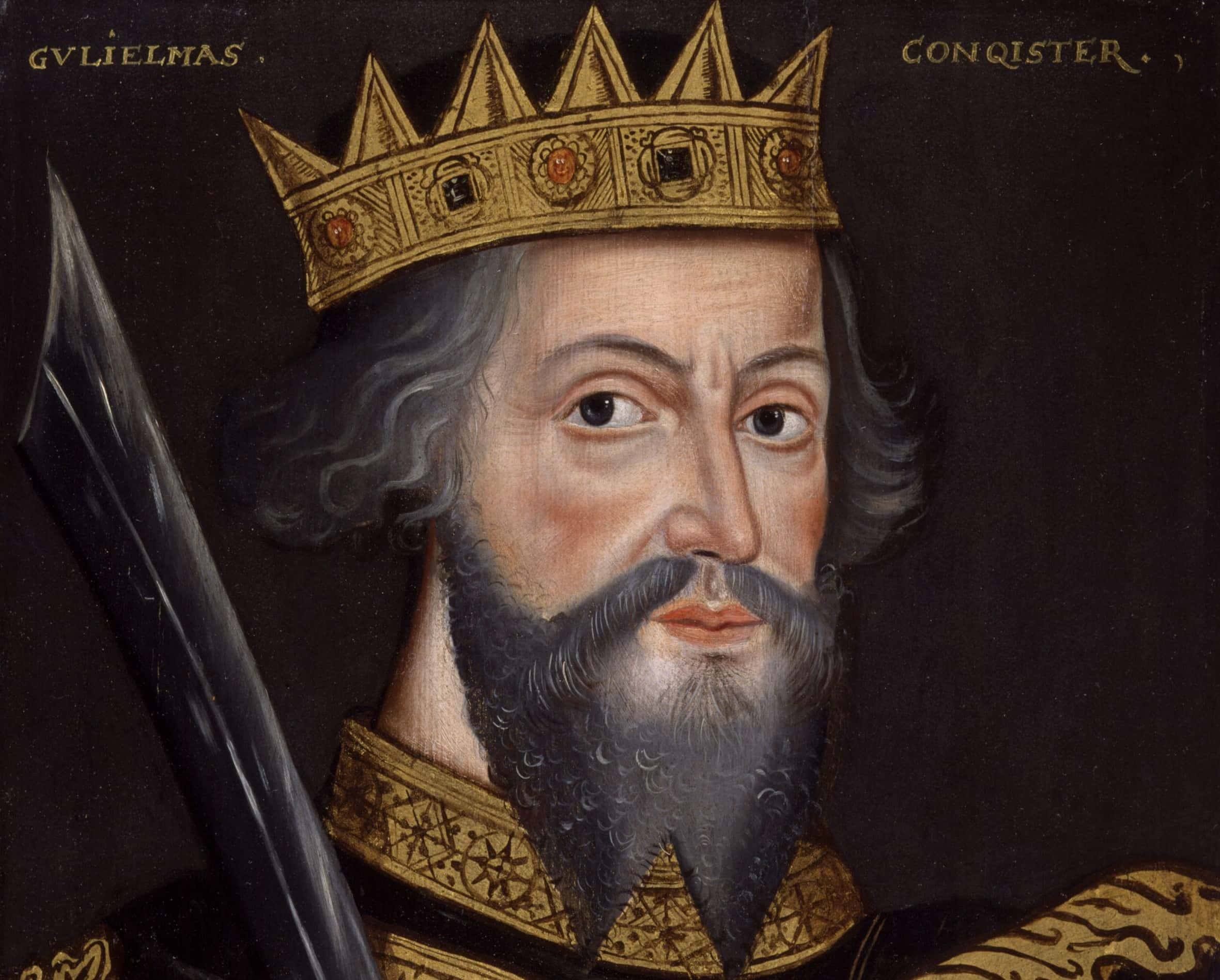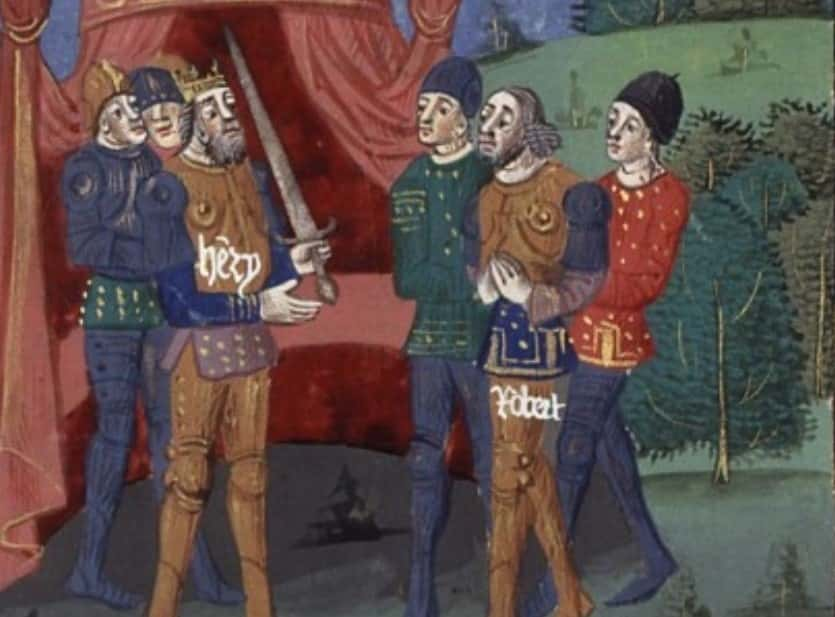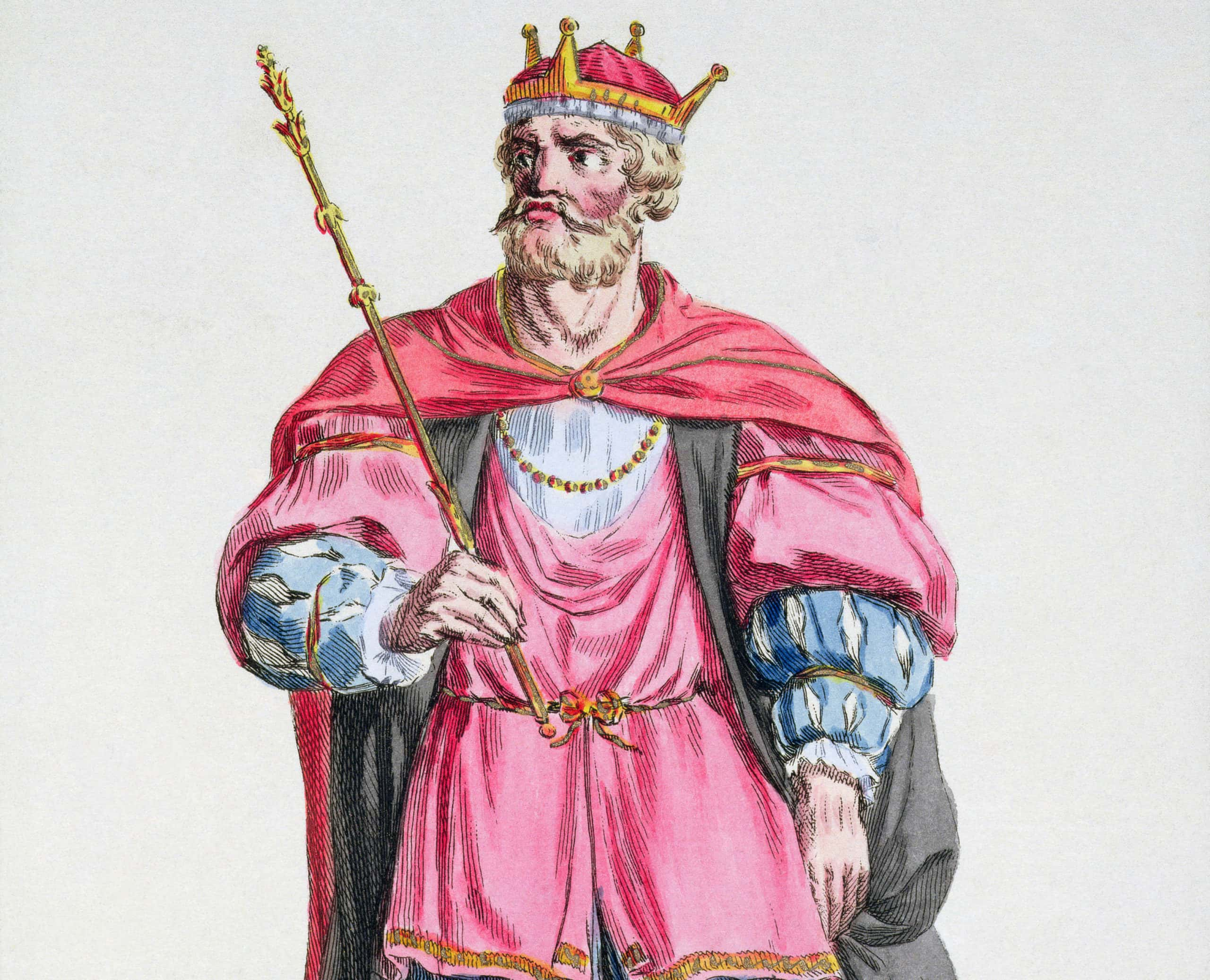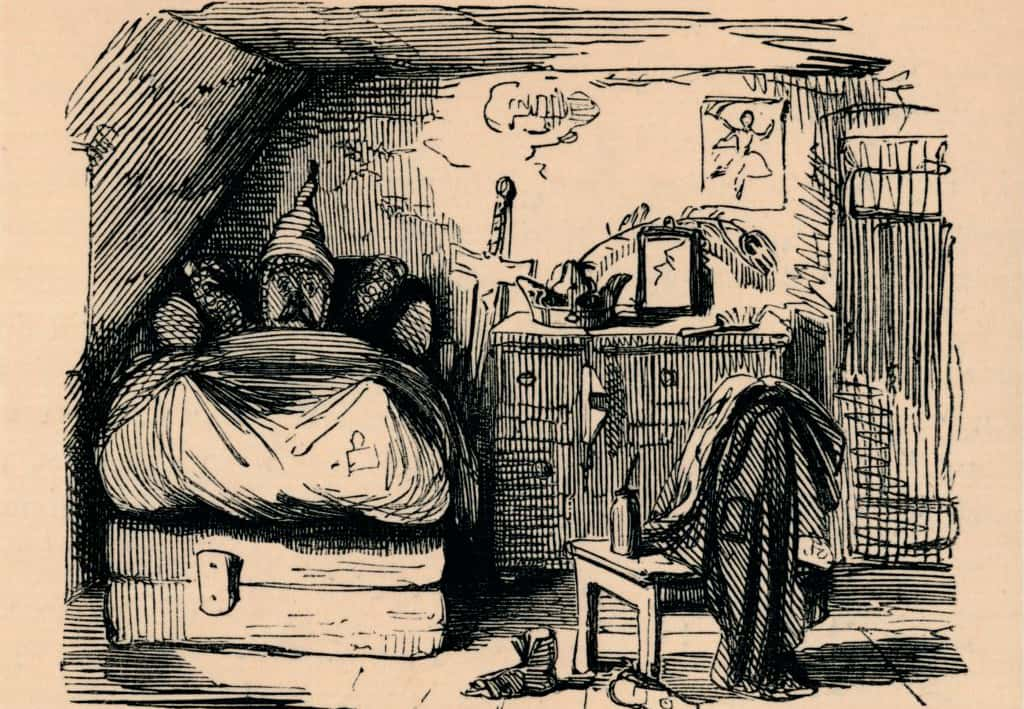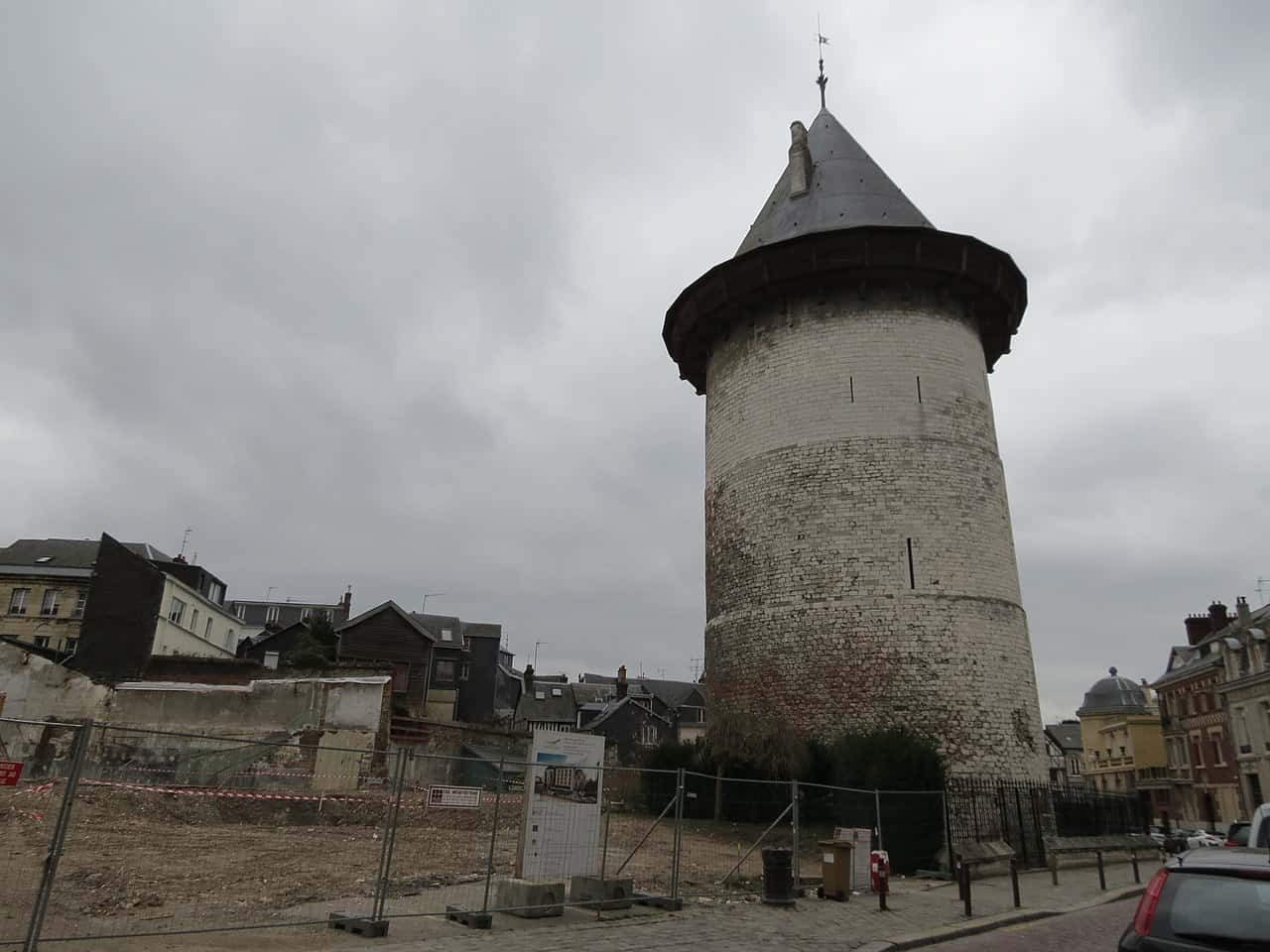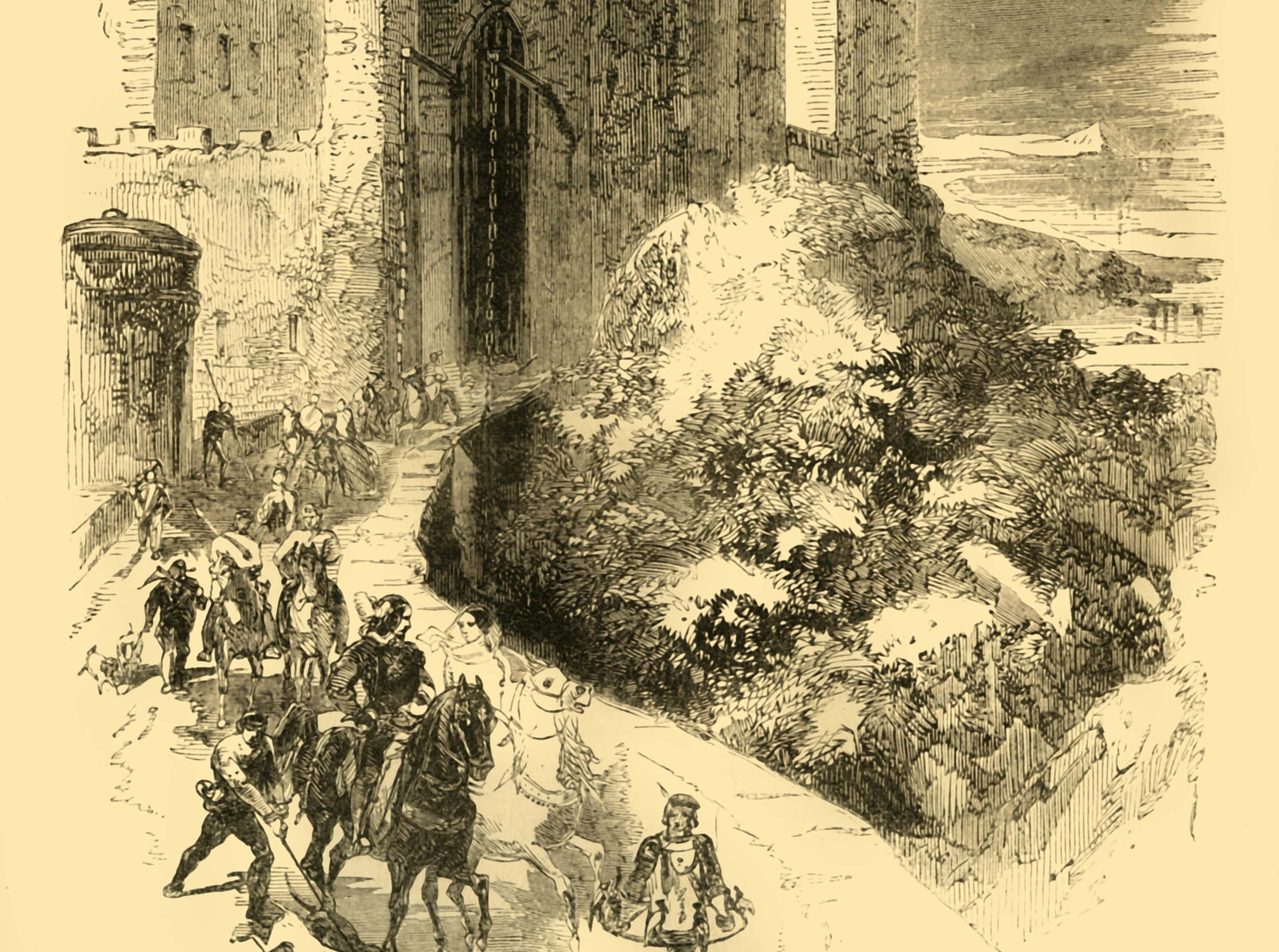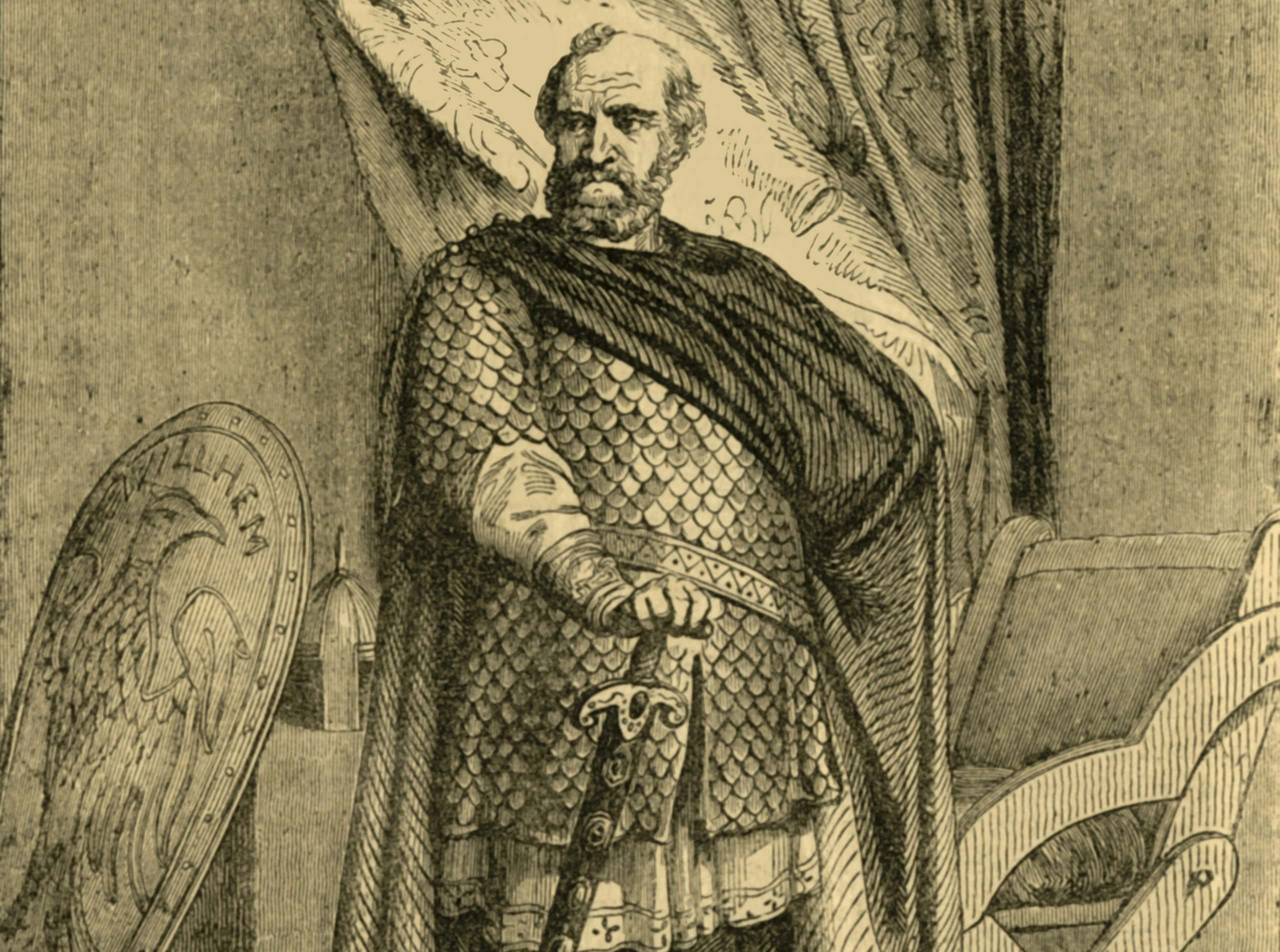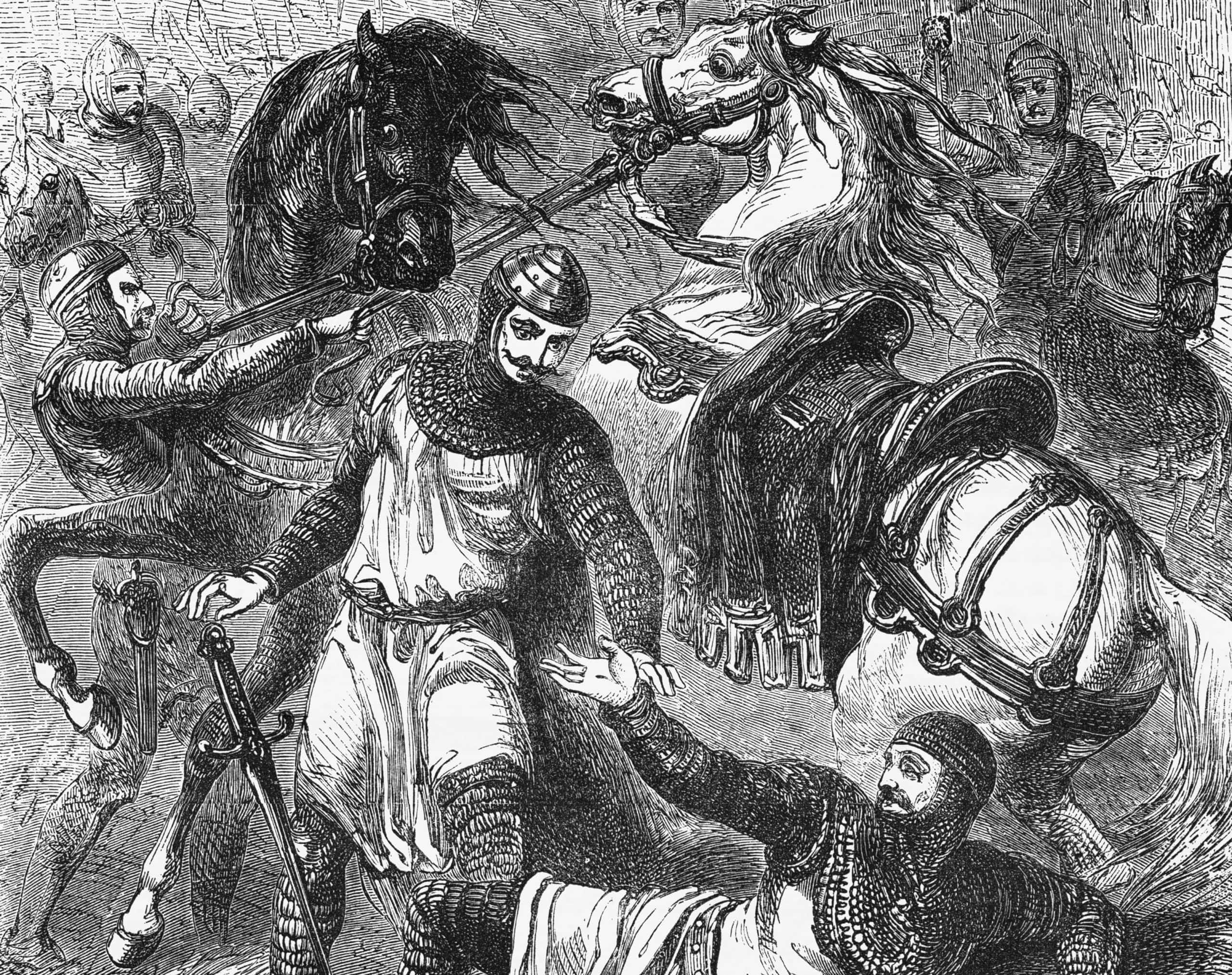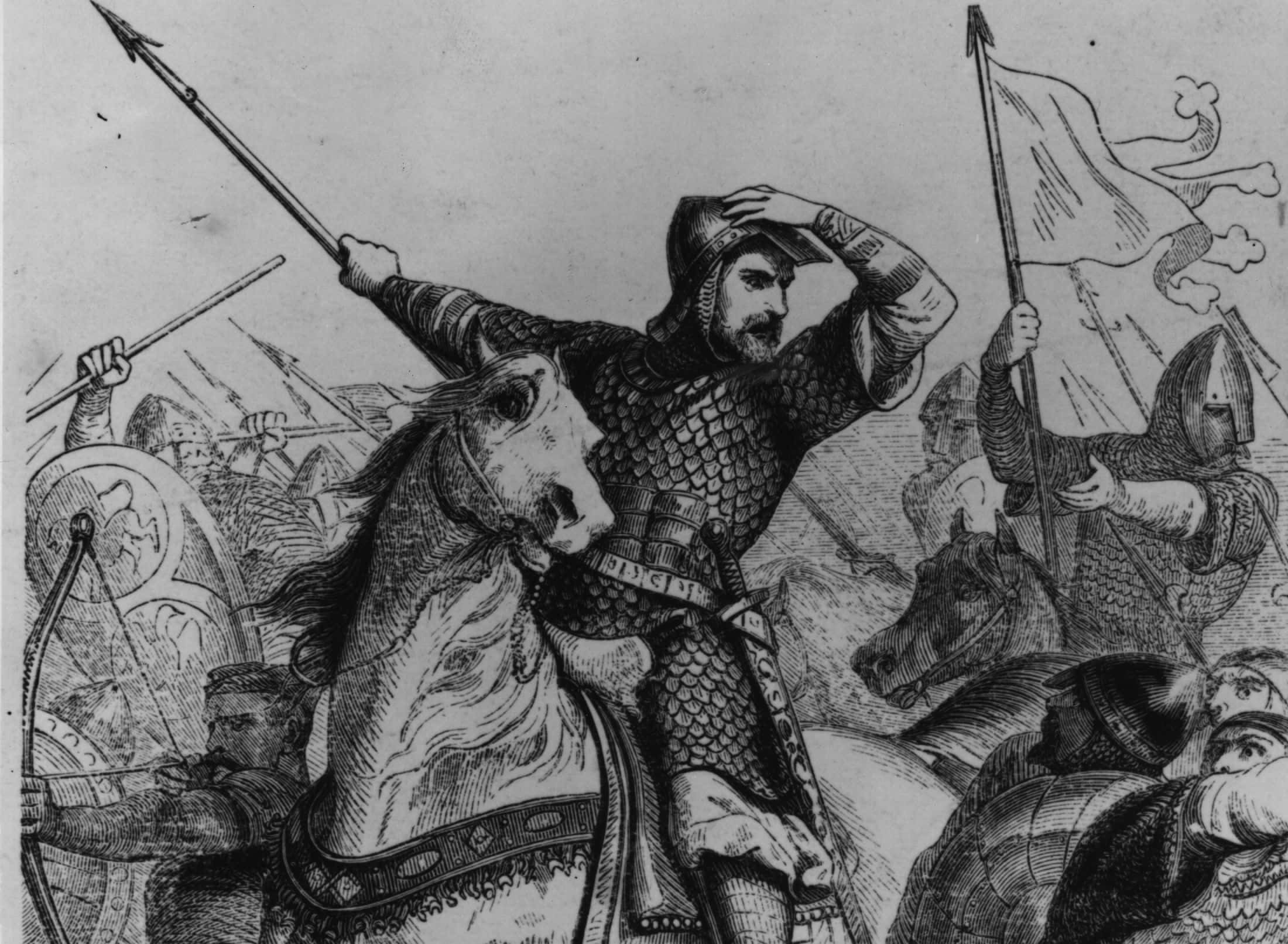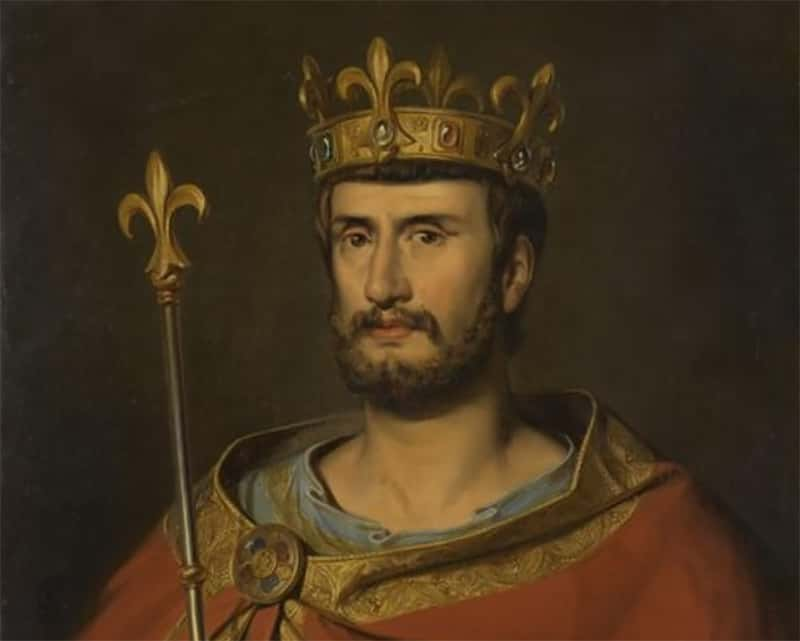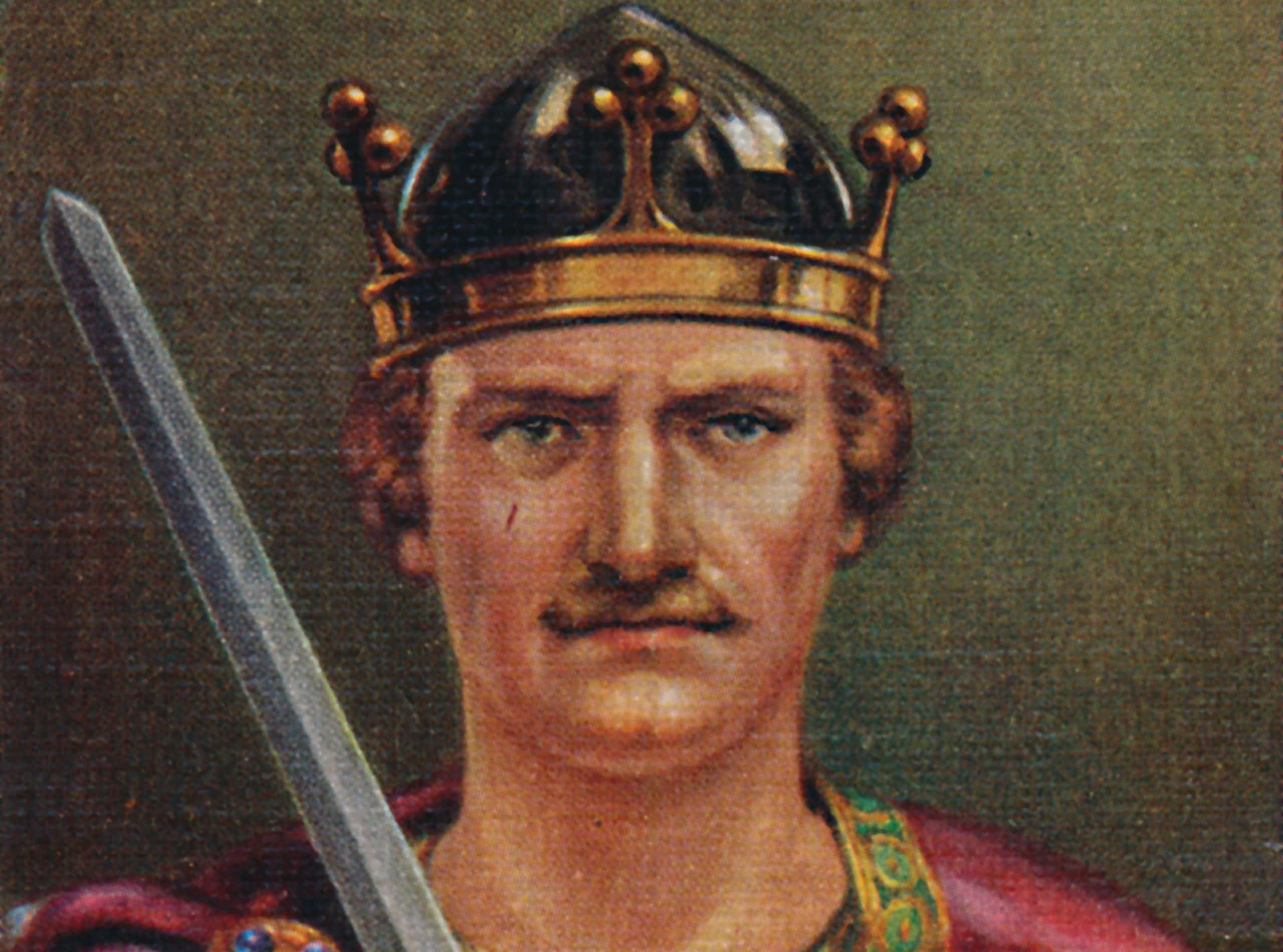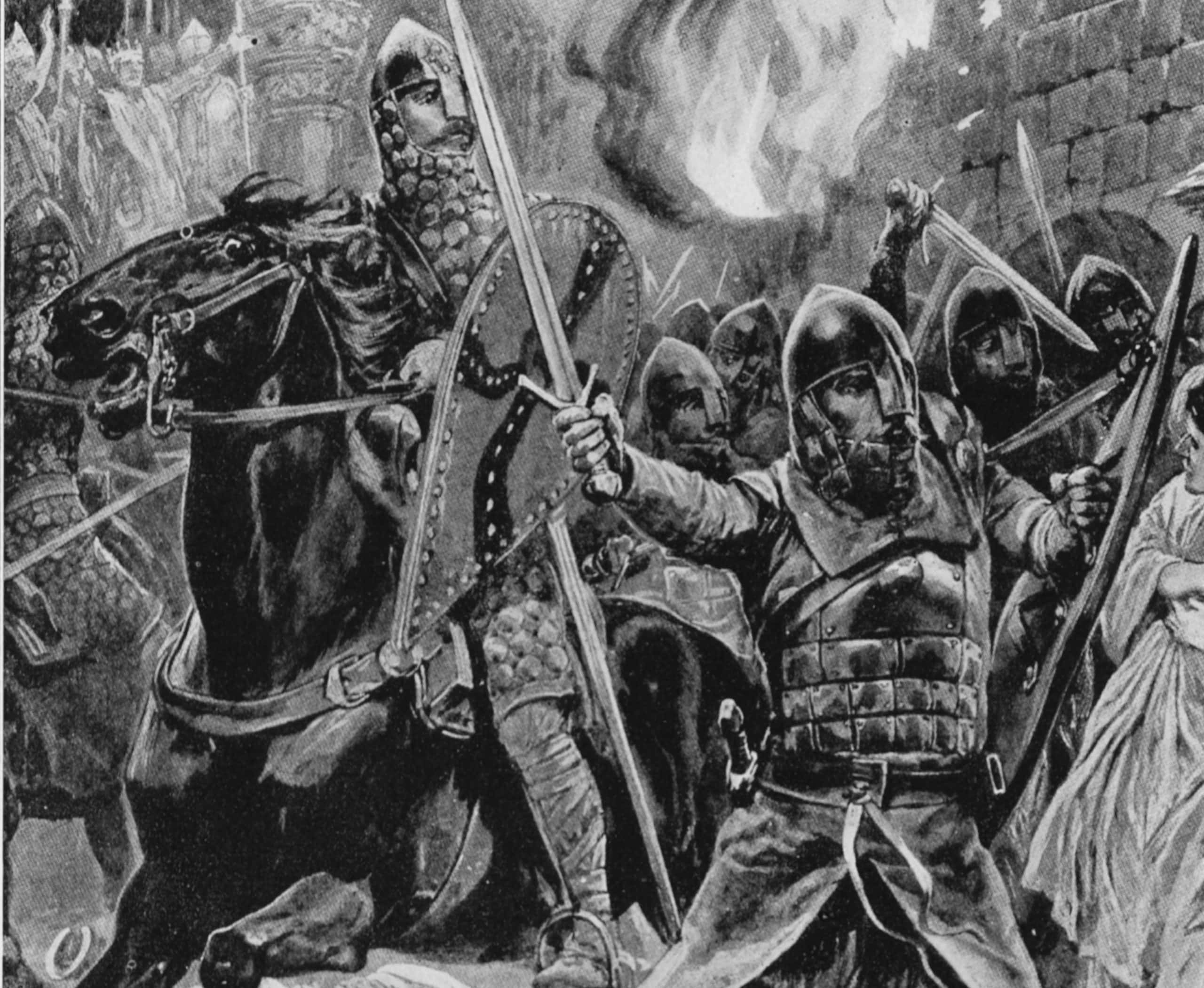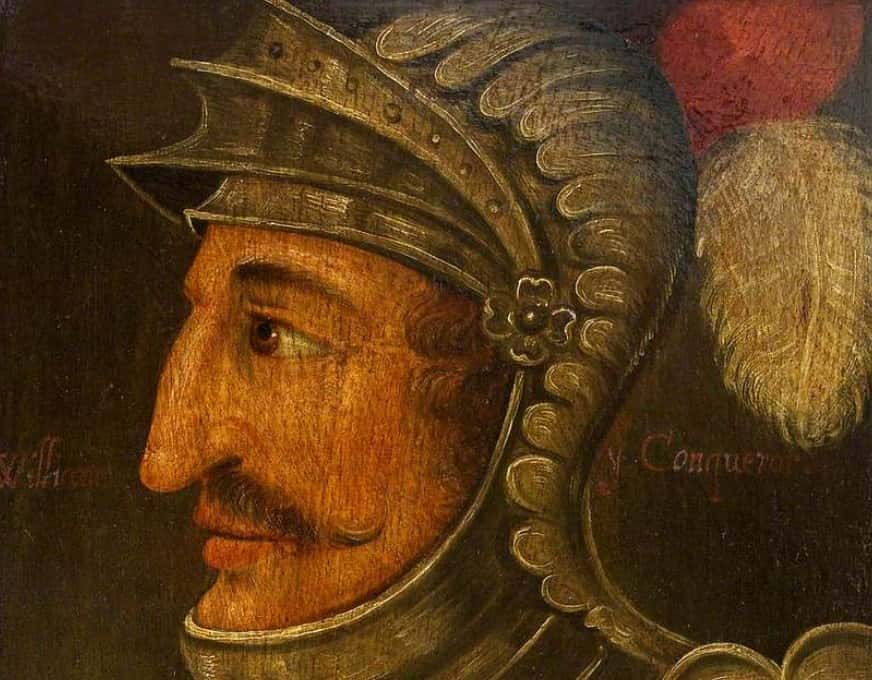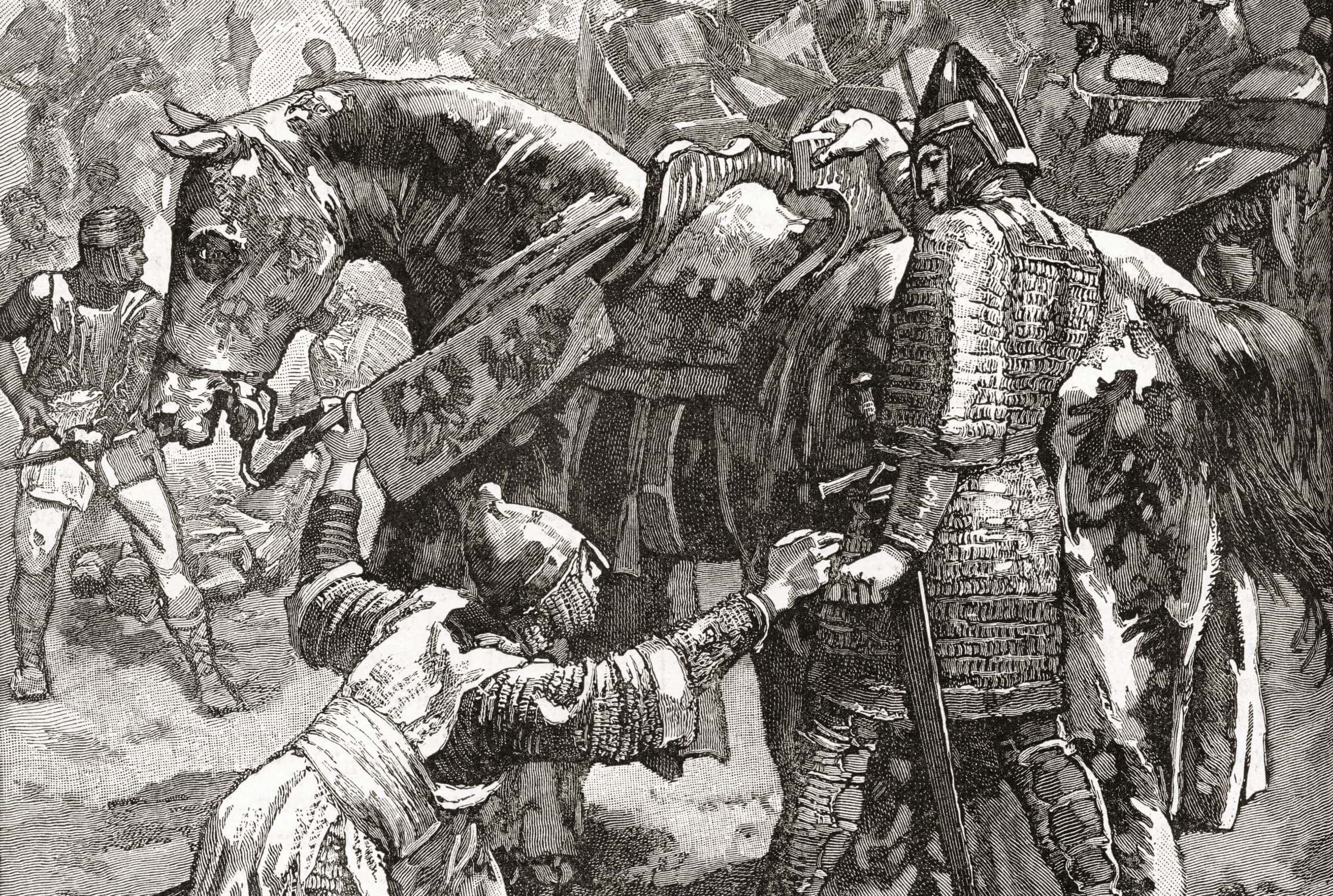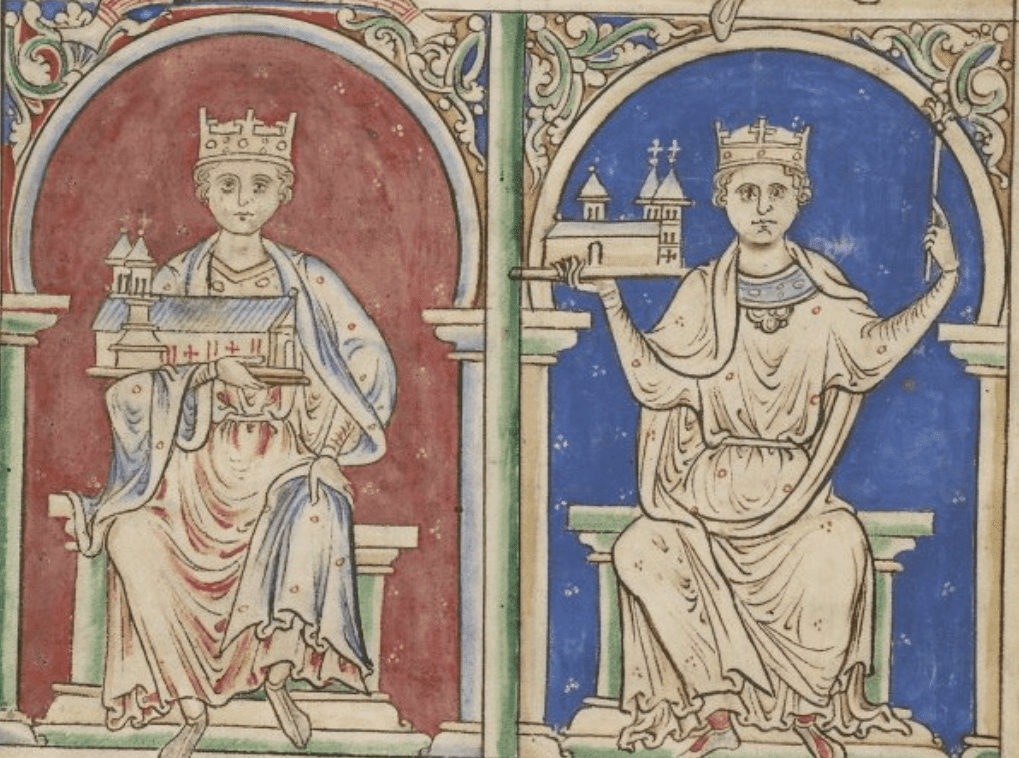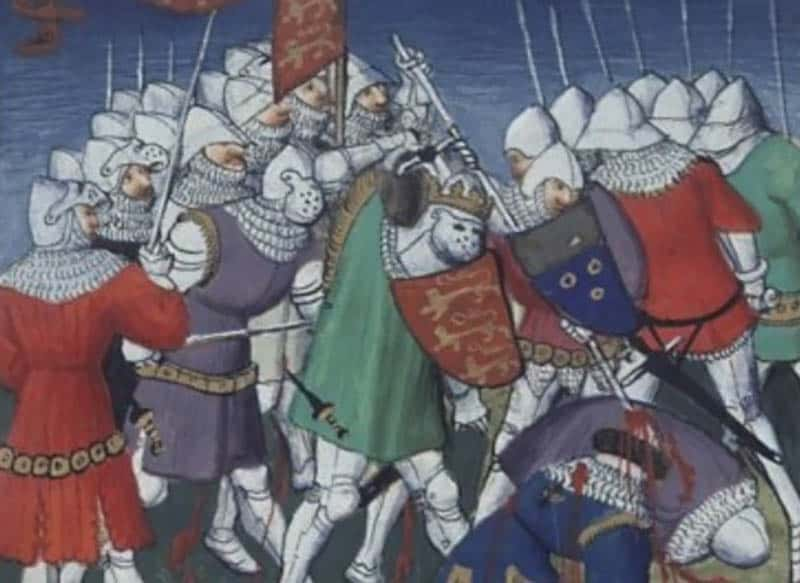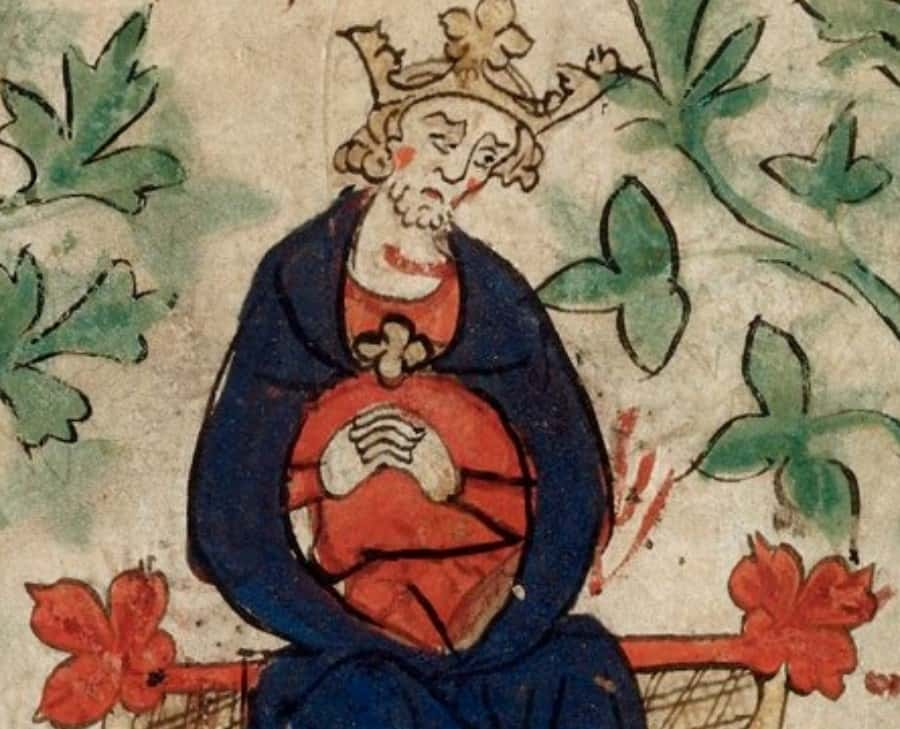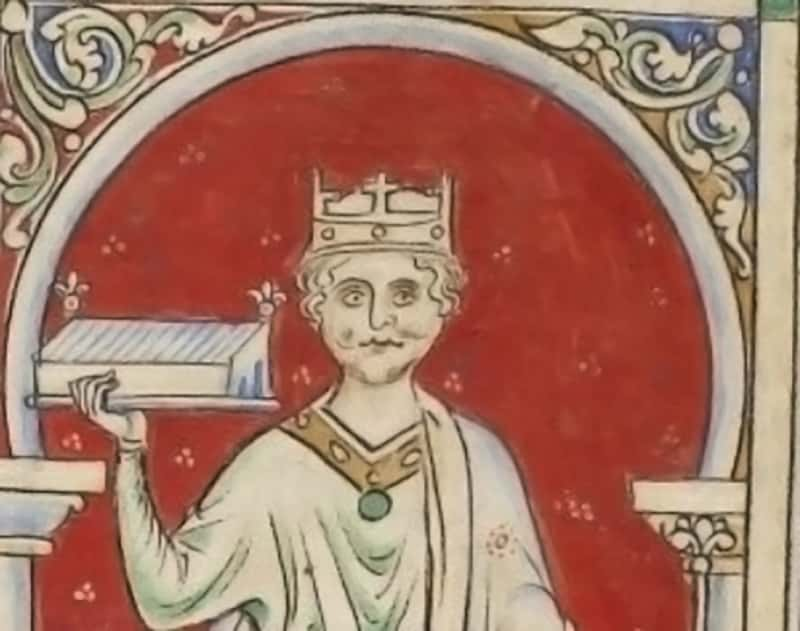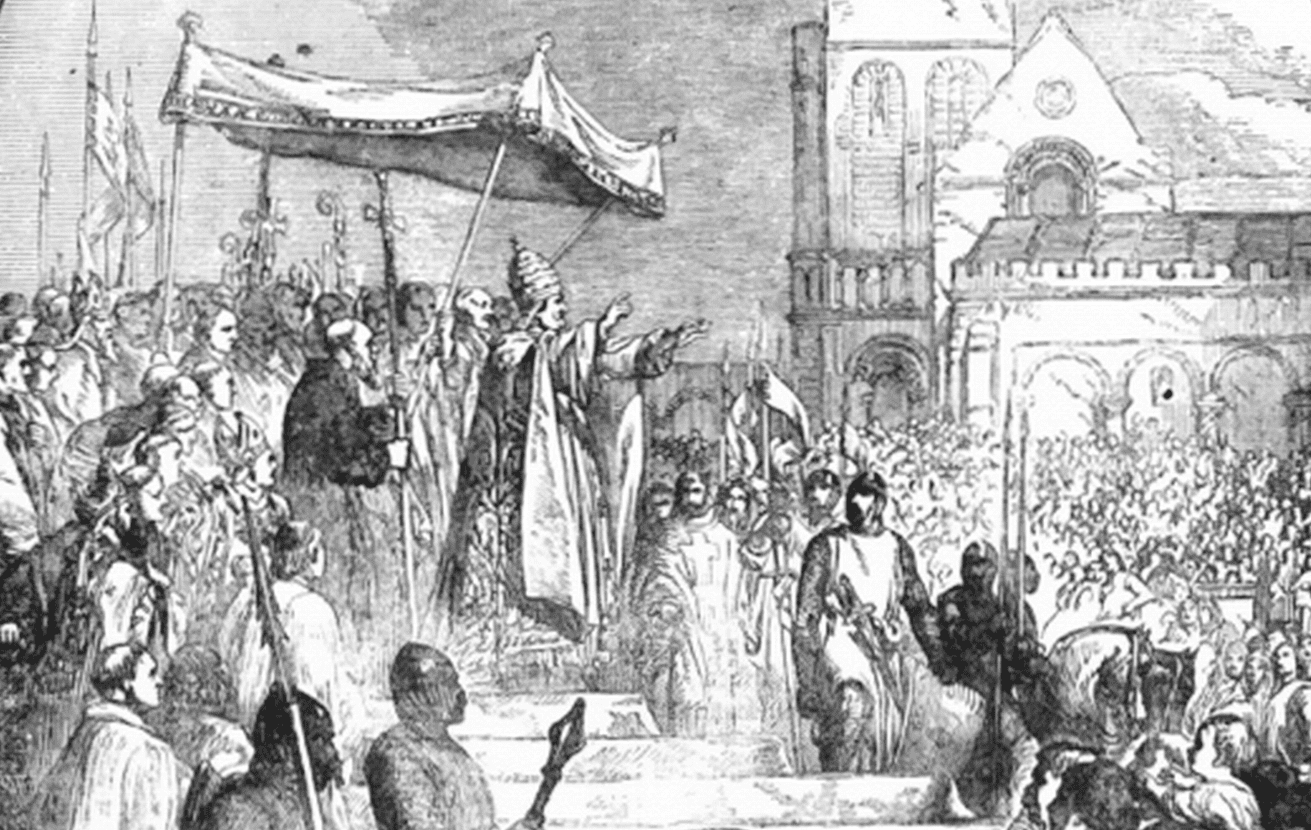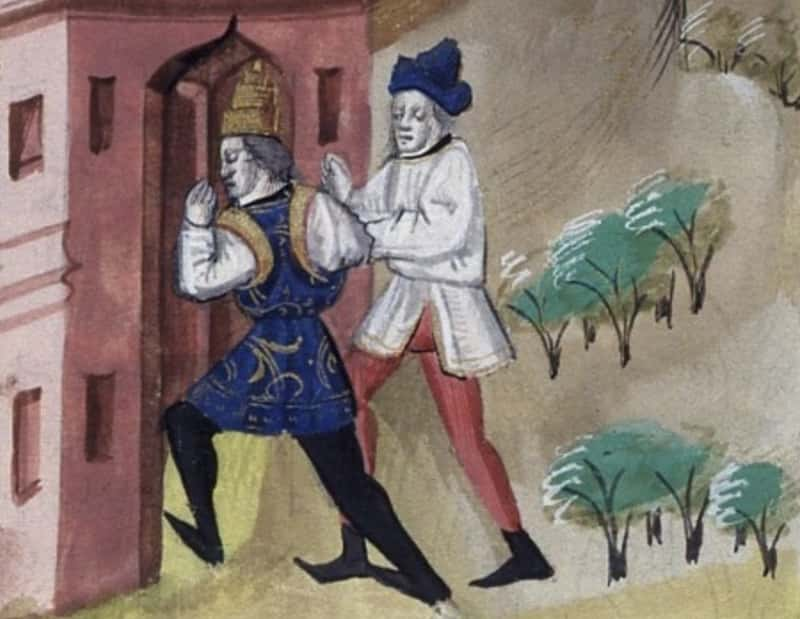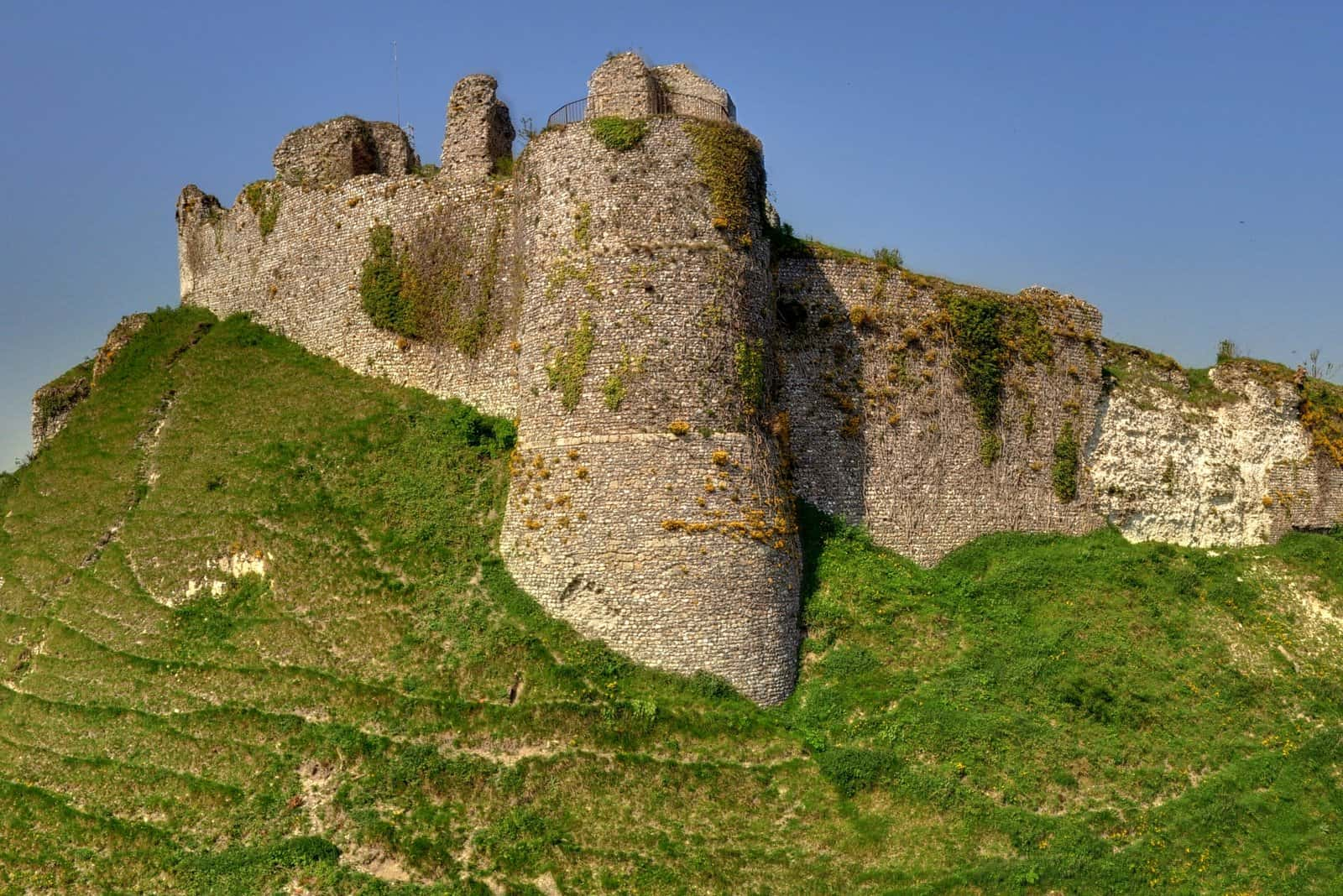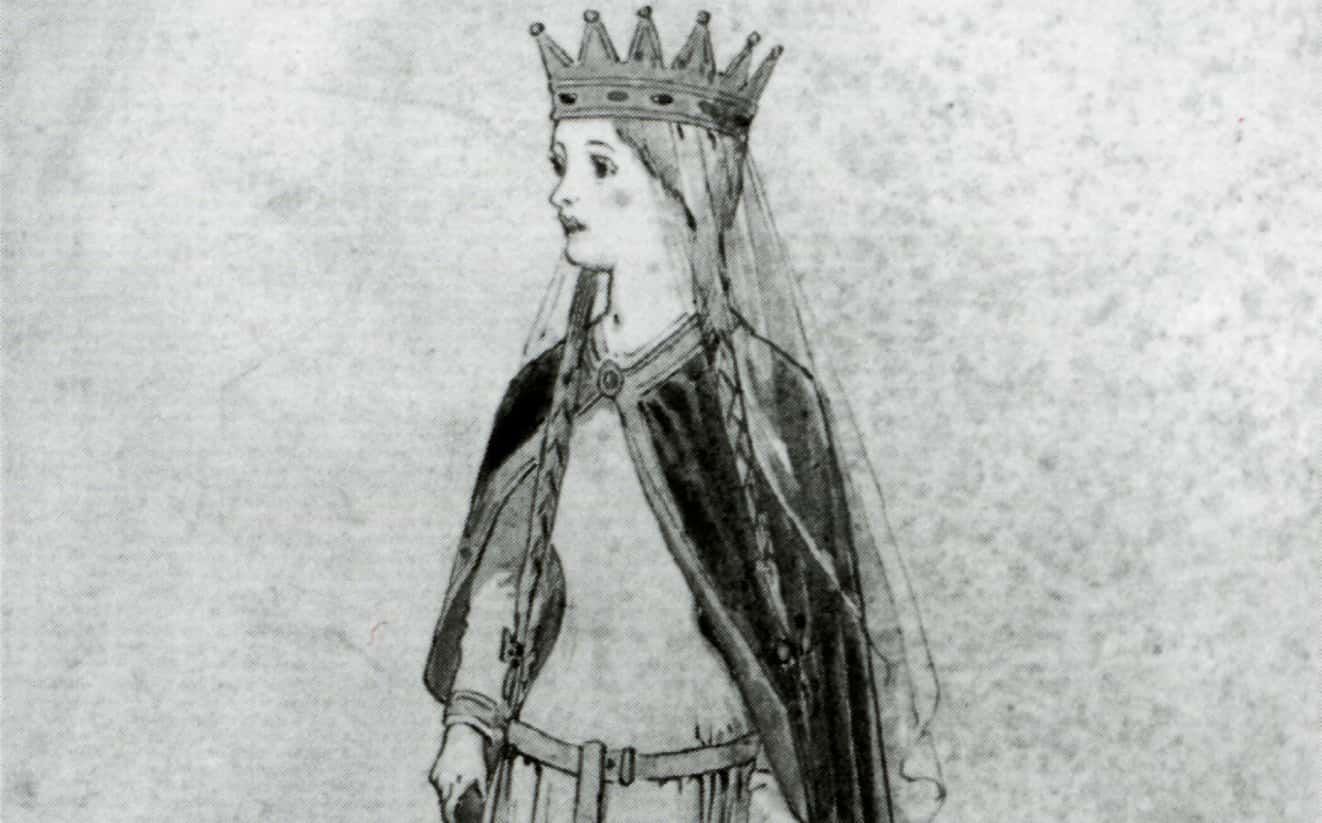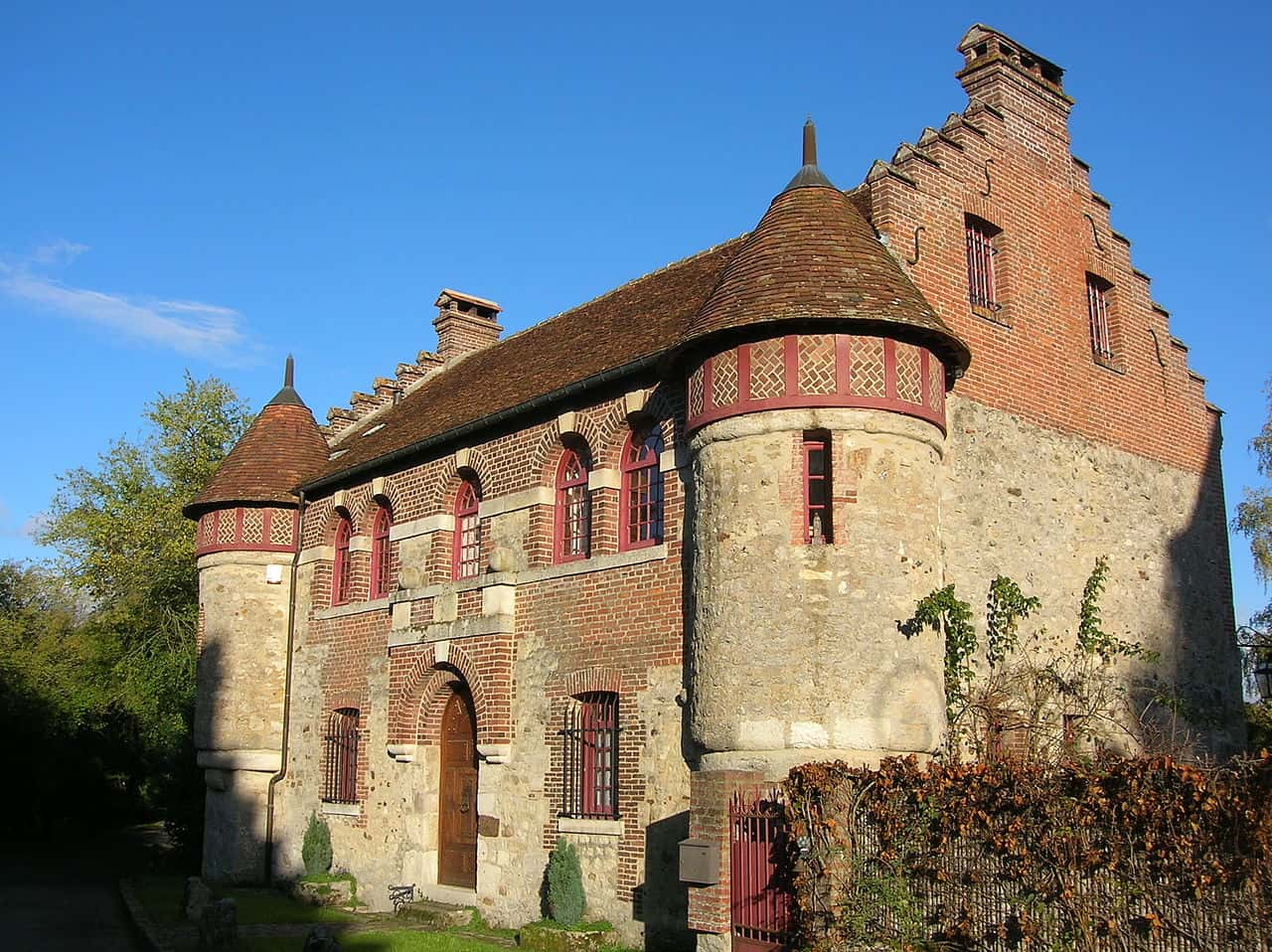The Rebel King
Everyone has probably experienced family drama at one point or another in their lives, but very few can say that their family drama ended up tearing an entire country apart. Such was the life of Robert Curthose, whose disagreements with his father and battles with his younger brothers for the countries of Normandy and England completely threw the two countries into utter chaos. Curthose’s story is one of personal failure, unlikely allies, and cruel betrayal.
1. He Was Destined For Great Things
From the moment Robert Curthose was born (around the year 1051), the young man faced sky-high expectations. Curthose was the eldest son of Matilda of Flanders and William the Conqueror, the man that led the audacious and successful Norman Conquest of England. Curthose’s mom and dad clearly expected their son to do right by the family, but, as we’ll soon see, putting their hopes on Robert was a huge mistake.
2. He Started Out Strong
At first, Curthose seemed like the sort of kid that could shoulder the expectations placed upon him. Thanks to his good education, Curthose became an eloquent speaker and even proved himself to be a brilliant field commander later in life. Unfortunately, these traits didn’t protect him from becoming a pawn in his parents’ search for political power.
3. He Became A Political Pawn
You see, Curthose’s mom and dad understood that political power wasn’t just gained through bloodshed—marriage alliances were just as important. So, Curthose’s savvy parents forged a powerful marriage alliance between Curthose and Margaret of Maine. But this union was no fairy tale. Curthose was only 10 years old at the time!
Young Robert already had a lot on his plate thanks to his parents, but they were about to throw even more at him.
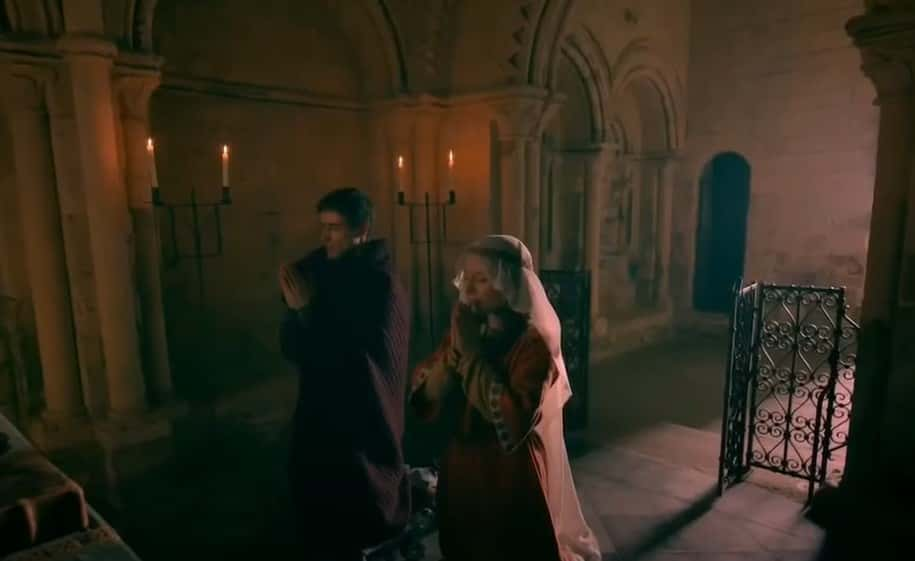 1066: A Year to Conquer England (2017), BBC
1066: A Year to Conquer England (2017), BBC
4. He Got A Taste Of Power
Before Curthose and his betrothed reached marriageable age, Margaret suddenly passed away. Luckily for Curthose, he still retained his new lands, and his father named him the Count of Maine in 1063. From there, his responsibilities snowballed. Curthose formally became his father’s heir, began receiving homage from Norman barons, and even signed off on legal documents.
All-in-all, Curthose was shaping up to be a good king—until everything all changed in an instant.
5. He Wanted More
By 1077, Curthose had inspired a considerable amount of admiration for his disposition in court. He was the picture-perfect knight and courtier; chivalrous and brave, affable and generous. But, while he had the admiration of his peers, he lacked any real power. While Curthose held many fancy titles on paper, in practice, he still depended almost entirely on his conquering dad.
So, around the year 1077, Curthose made a decision that ended up tearing both his family and his realm apart.
6. He Made A Bold Move
In around late 1077, Curthose, egged on by those close to him, marched up to his dad and demanded the immediate right to rule over Normandy. Unsurprisingly, his dad said no. His dad pointed out that Curthose was already his heir, and would receive his lands in due course—handing his lands over right this second was a rash decision at best, and a recipe for disaster at worst.
This only served to tick Curthose off even more.
7. He Didn’t Back Down
Curthose fired back to his dad that he had heard the same promises time and time again. Curthose was sick of promises; he wanted real, tangible power. Neither son nor father could come to an agreement, which badly strained their relationship. Still, things between Curthose and his dad didn’t entirely go south—at least, not yet. The event that caused their relationship to break down entirely came just a short while after their argument.
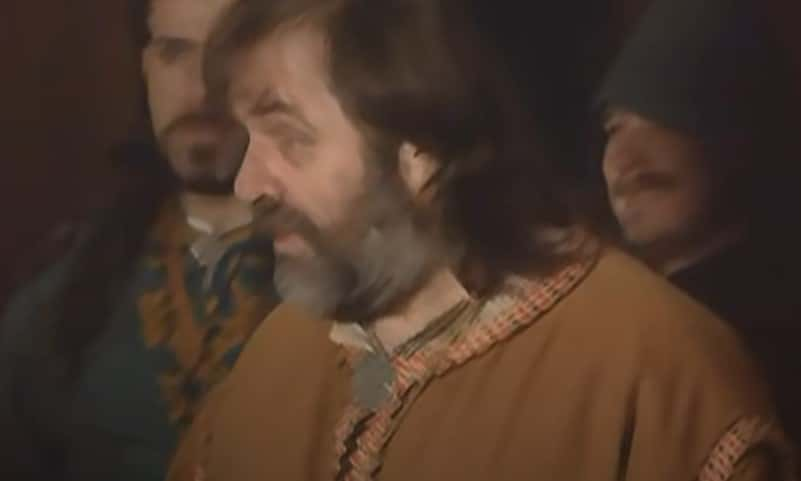 Kings and Queens of England (2004), UKTV History
Kings and Queens of England (2004), UKTV History
8. His Brothers Pushed Him Too Far
It was Curthose’s two younger brothers, William Rufus and Henry Beauclerc, who caused the relationship between Curthose and his dad to completely blow up. Both Beaclerc and Rufus believed that Curthose’s demands were nothing short of insane, and completely supported their dad’s decision to shut down their older brother's push for power.
Unlike their dad, however, Curthose’s younger brothers took things one step further. They completely humiliated Curthose—and it was brutal.

History's most fascinating stories and darkest secrets, delivered to your inbox daily.
9. He Had Mischievous Siblings
The event happened while Curthose’s dad was preparing for another one of his expeditions. Curthose and his companions had tagged along and settled themselves into some lodgings near his father. That’s when his younger brothers made a surprise visit. The two men—likely after more than a few ales—stumbled their way up to the second floor of the lodge, spotted a chamber pot, and suddenly thought of a terrible way to put Curthose in his place.
10. His Brothers Became His Enemies
You can probably guess what happened next. Using all their strength, Beauclerc and Rufus heaved the chamber pot—along with all its contents—onto Curthose and his companions on the first floor. Curthose was furious. He rushed upstairs to the second floor and a wild brawl ensued. Things got so raucous that even their dad heard the noise.
He rushed over to Curthose’s lodgings and put a stop to the fighting. Things for Robert Curthose went downhill from there.
11. He Endured Humiliation
Curthose—likely black and blue and...brown—fully expected for his dad to punish his unruly younger brothers. Instead, Curthose’s dad made a decision that shocked and enraged him. He simply let the two younger men go. Humiliated and likely feeling betrayed, Curthose sat and stewed in his own anger. Eventually, Curthose formed a devious and rash plan to get revenge upon his own family.
12. He Made A Rash Decision
That evening, Curthose and those closest to him snuck away from his father’s forces. Curthose then led this small force straight to Castle Rouen and launched an incredibly ill-conceived surprise siege on the castle. Yes, seriously. As you can imagine, the siege utterly failed, but Curthose’s dad didn’t let him off the hook for his act of treason. In fact, Curthose’s dad made sure that his son felt the depths of his anger.
13. He Started A Rebellion
William the Conqueror quickly ordered the capture of Curthose and his men. What he likely didn’t account for, however, was the speed at which the news of Curthose’s act of rebellion spread. Seeing an opportunity to unseat the Norman king, those who opposed him opened their gates to Curthose, including a man named Hugh of Châteauneuf-en-Thymerais.
Hugh granted Curthose the use of three of his castles, and soon, others began flocking to Curthose’s side. The family drama was about to kick into high gear.
14. He Was A Force Of Chaos
Curthose and his noble rebels grew to become a royal thorn in King William’s side. The mayhem started at the borders of King William’s kingdom prompted him to redirect his forces to address his unruly son. Soon, Curthose’s dad struck their base at Castle Rémalard, forcing Curthose to flee. He found refuge in the court of his uncle, Robert I, Count of Flanders.
Relatively safe under the protection of his uncle, Curthose continued to spread chaos across his father’s realm.
15. He Became A Dangerous Man
While in Flanders, Curthose plundered the county of Vexin and did his best to destroy the realm his father created. By now, Curthose wasn’t just a nuisance to his dad; thanks to a growing number of supporters, Curthose was an actual danger to the realm. Emboldened by his successes, Curthose continued to repel his father’s forces again and again. Finally, it all came to a head in January of 1079.
16. He Embarrassed His Dad
Curthose’s forces and his father’s forces fought a pitched battle right outside of Castle Gerberoy. Eventually, Curthose and his dad met in single combat amidst the chaos of the field. Curthose’s dad, now an aging man in his 50s, stood no chance against his young son. Curthose wounded his father in the hand and, most humiliatingly of all, unhorsed the elderly king.
William and his forces fled, but that wasn’t the last that Curthose saw of his dad.
17. He Lost His Father’s Love
The unexpected defeat completely stunned William the Conqueror, who cursed his son and vowed to disinherit him. At this point, though, both Curthose’s supporters and his dad’s supporters were sick and tired of fighting. Curthose’s supporters pressed the king for peace. Some defended Curthose, saying that bad advice led the young man astray. Others begged him to show compassion.
Curthose’s dad stood firm…until it came to his wife.
18. He Disappointed His Dad
Unsurprisingly, William wasn’t really keen on forgiving his son. As far as he was concerned, Curthose would’ve happily “armed the whole human race against his father” if it were possible. Still, local barons and bishops, with the help of Curthose’s mom, kept prodding him to forgive Curthose and to end the conflict. It took some time, but Curthose’s dad finally relented and forgave his wayward son.
The peace between them didn’t last for long, though.
19. They Became Temporary Partners
For three short years, Curthose and his dad managed to work together to strengthen their hold over their lands. In 1081, Curthose and his dad allegedly raised a force of 60,000 warriors to recapture Maine, which was taken while Curthose was away in England. The two co-existed relatively peacefully, until a family tragedy changed the course of their lives once again.
20. He Lost His Mother
In 1083, Curthose’s mother succumbed to a painful illness. With the loss of Curthose’s mother came the end to the peace between Curthose and his dad. The reasons why are unclear—perhaps it was an act of misplaced grief, or the King’s continued refusal to give Curthose more power, or the King’s habit of publicly chastising Curthose for supposed disobedience.
Either way, Curthose left, perhaps to find power on his own. In a tragic twist, his search for power ended in failure.
21. He Became A Wanderer
For a time, Curthose became a wandering knight and traveled through France, Germany, and Flanders. What he did during this time is a bit of a mystery, but at least one account stated that he tried (and failed) to win the hand of Matilda of Tuscany in order to gain support against his father. Eventually, Curthose’s wanderings led him to France, where he struck up a friendship with an unexpected man.
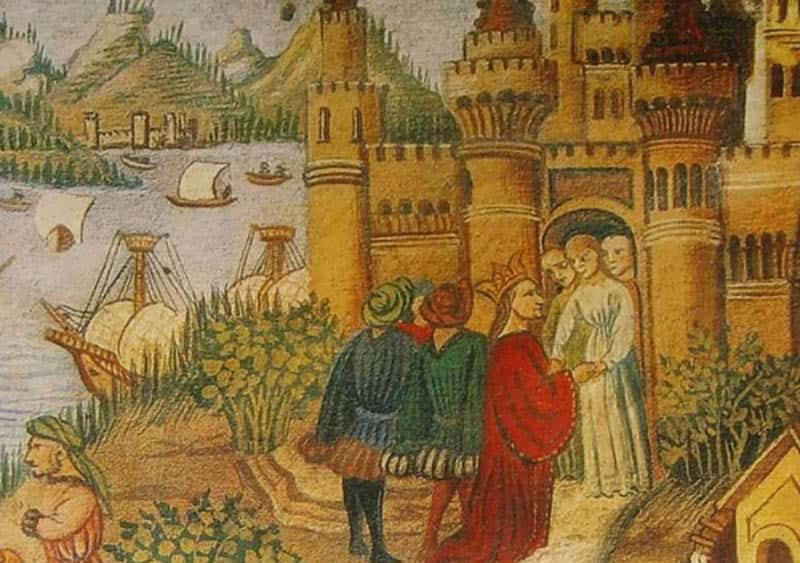 Picryl
Picryl
22. He Made An Unexpected Ally
So back when Curthose was rebelling against his dad, things got so bad that the aging King William allied himself with one of his greatest enemies to take his son down: King Philip I of France. But the thing is, Philip could turn on you like that: Curthose’s travels eventually led him to the court of the French king, where the two became friends.
With King Philip’s help, Curthose rebelled once again against his father, but what exactly led to the French King’s sudden change of allegiances?
23. His Alliances Angered His Dad
King Philip may have had ulterior motives for supporting Curthose outside of friendship. He and Curthose’s dad were natural enemies, after all, and that fact infuriated his dear old dad. When William found out that Curthose was in bed with King Philip I, his anger at his son likely grew and festered. Soon, William did something that changed the course of his country’s future.
24. His Father Became His Enemy
For the next several years, Curthose continued to actively stir up trouble for his dad with the help of his new royal buddy. William soon grew sick and tired of Curthose’s antics—so he struck back. In late summer of 1087, Curthose’s dad gathered his forces and led an expedition into France, and attempted to seize the city of Mantes. At that moment, Curthose’s dad made a fatal error.
25. Tragedy Befell His Father
During the chaos of the battle, Curthose’s dad suffered a riding accident that resulted in grievous injury. His men rushed the king to the city of Rouen, where they hoped the Conqueror would heal. This was not to be. As the weeks passed, it became painfully clear that Curthose’s dad was on his last legs. As the life left his body, the king’s bitter hatred towards his son reared its ugly head.
26. His Father Tried To Take Revenge
Reportedly, the king attempted to disinherit Curthose completely, but that proved impossible; by now, the king had at least twice confirmed Curthose to be his heir. Instead, he wreaked vengeance on Curthose in another way. The king left Normandy to Curthose, as that was his birthright. However, he left England—the land he conquered—to his second son, William Rufus.
With that, Curthose’s dad breathed his last—and the kingdom almost immediately fell into chaos.
27. He Wasn’t Entirely A Bad Son
Now, credit where credit is due, Curthose didn’t rage against his dad for not giving him both kingdoms—at least, not immediately. After taking possession of Normandy, Curthose helped to carry out his dad’s last wishes; mainly, this meant distributing his dad’s treasures and releasing prisoners. However, as news of his dad’s fall quickly spread through the kingdom, Robert Curthose was soon forced to make one of the most important decisions of his life.
28. He Received Unexpected Support
After Curthose and his brother took over their respective kingdoms, a number of nobles in Normandy and England faced a dilemma. Now that the lands were split between Curthose and his brother, many nobles worried that they could not serve Curthose without offending his brother, or vice-versa. To solve this, the nobles came up with a radical solution. To carry it out, they needed Curthose to commit the ultimate act of betrayal.
29. He Betrayed His Brother
According to the nobles, Normandy and England needed to be under one rule. To do this, they threw their support behind Curthose, and proposed a plan to make him the king of Normandy and England. After hearing about the extensive preparations and the lengths the nobles were willing to go in order to give him the English crown, Curthose agreed to support the overthrow of his younger brother.
The two siblings were now officially enemies. What, you thought the family drama ended with William?
 Kings and Queens of England (2004), UKTV History
Kings and Queens of England (2004), UKTV History
30. Luck Turned Against Him
Towards the summer, the Rebellion of 1088 began. The nobles supporting Curthose fortified their castles and prepared to reduce Rufus’s lands to ashes. In the meantime, Curthose prepared a fleet of ships to transport men into England from Normandy. Unfortunately for Curthose, luck was not on his side. His bid for the English crown was about to go disastrously wrong.
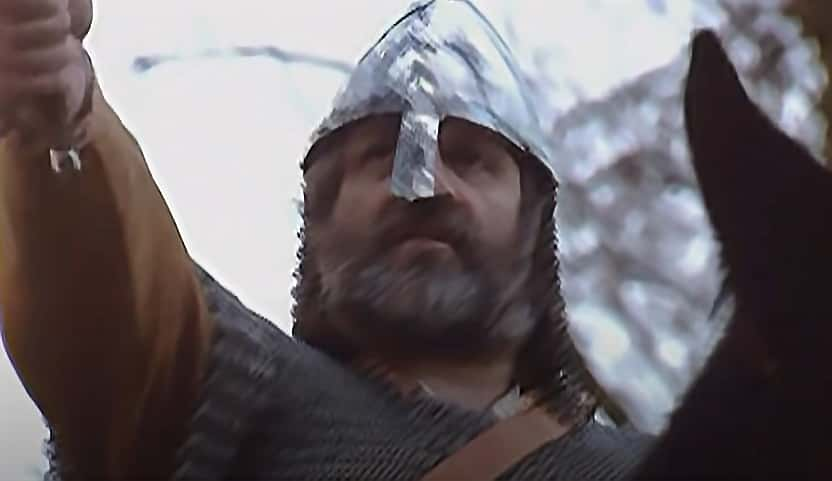 Kings and Queens of England (2004), UKTV History
Kings and Queens of England (2004), UKTV History
31. He Gave Up His Lands
The first issue was that Curthose simply didn’t have the money to support the rebellion. He ended up having to part with some of his lands and sell them to Beauclerc, his youngest brother, to fund his rebellion. The second issue came in the form of William Rufus himself: In a surprise twist, Rufus ended up being quite the capable leader, outmaneuvering the rebellion at every turn.
Curthose pushed on nonetheless, unaware that another disaster awaited him around the corner.
 Kings and Queens of England (2004), UKTV History
Kings and Queens of England (2004), UKTV History
32. His Plan Completely Failed
You know that fleet that Curthose was preparing? In an unfortunate twist, the ships never made it to England. Bad weather drove Curthose’s ships back, preventing them from leaving Normandy. When Curthose’s men didn’t arrive to support the rebellion, the nobles—outnumbered and outmatched—surrendered. The plan to make Curthose the king completely fell on its face, and the fallout was the stuff of legends.
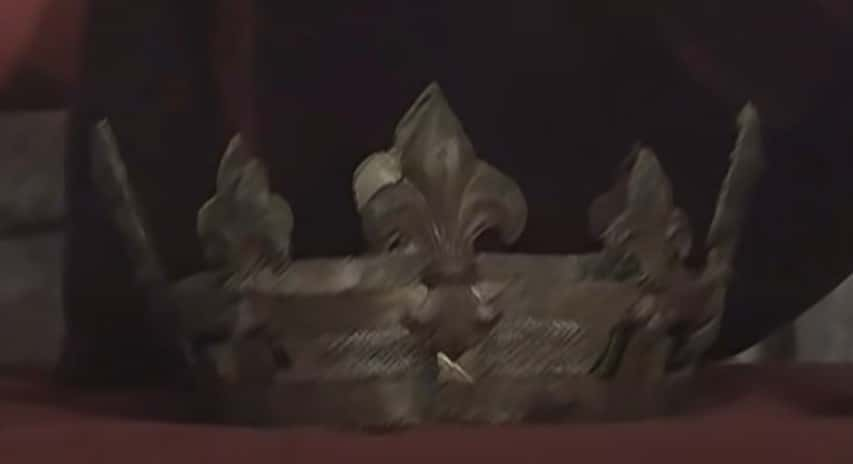 Kings and Queens of England (2004), UKTV History
Kings and Queens of England (2004), UKTV History
33. Their Sibling Rivalry Turned Ugly
Curthose’s rebellion was over, and he paid a heavy price for his failure. Not only did he fail to secure the English crown, but he lost a chunk of his lands to his youngest brother. Curthose attempted to take his lands back, but young Beauclerc made the smart move of strengthening his grip on the lands he bought, making it impossible for Curthose to go back on his deal.
The tensions between the three brothers continued to rise. It all exploded in 1090.
 1066: A Year to Conquer England (2017), BBC
1066: A Year to Conquer England (2017), BBC
34. He Had A Surprising Ally
In late 1090, William Rufus—likely still angry at Curthose for the whole rebellion thing—encouraged a powerful and wealthy man named Conan Pilatus to rebel against Curthose in the city of Rouen. Driven into a corner, Curthose asked for help from his barons. In a shocking move, Curthose’s youngest brother Henry Beauclerc answered his call, and arrived to help Curthose in November.
Now presenting a united front, the two brothers faced down Pilatus in a confrontation that went down in history.
35. His Victory Came At A Cost
The battle in Rouen was confusing and chaotic. Both Curthose and Beauclerc personally joined the battle within the city, but Curthose retreated early. Because of that, he didn't get to see the wild events that transpired. Eventually, Curthose’s youngest brother prevailed, and even threw Pilatus off the top of the castle as a grisly warning to those who planned to betray their lord.
However, instead of thanking Beauclerc for his support, Curthose did something that likely shocked and confused his brother.
36. His Life Began To Fall Apart
Instead of expressing his gratitude, Curthose forced his brother to leave Rouen, possibly because his brother’s valor in battle ended up overshadowing him. Then, in early 1091, Rufus invaded Normandy and forced Curthose into negotiations (as far as we know, Beauclerc didn’t offer to help Curthose out this time). At the negotiating table, Curthose’s actions only ended up further alienating himself from Beauclerc.
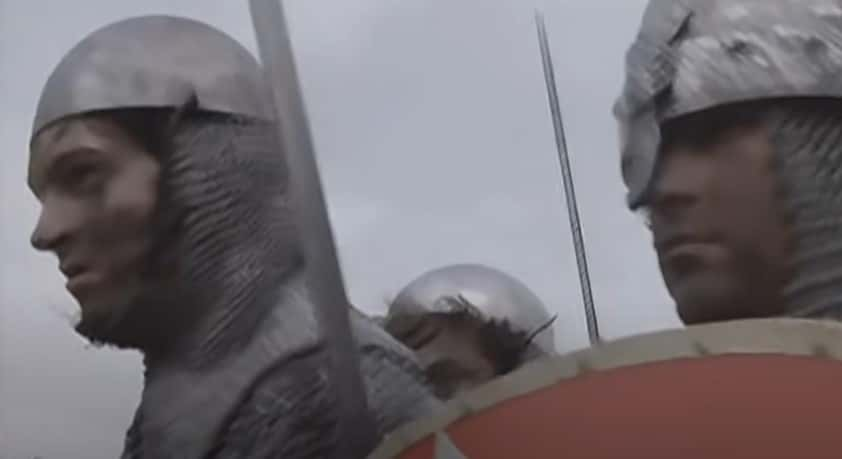 Kings and Queens of England (2004), UKTV History
Kings and Queens of England (2004), UKTV History
37. He Turned Against His Brother
Curthose and Rufus agreed to become each other’s heirs, completely shutting Beauclerc out of the line of succession. To really twist the knife further, Rufus agreed to help Curthose “recover” the lands that he sold to Beauclerc to fund the Rebellion of 1088. By March 1091, the three brothers were at each other’s throats again, with Curthose and Rufus on one side, and Beauclerc on the other. The end result of their sibling rivalry was not pretty.
38. He Drove His Brother Into A Corner
As Curthose and Rufus’s forces advanced, Beauclerc retreated to Mont Saint-Michel. Curthose proceeded to besiege his youngest brother, but the city was well-defended. Soon though, Beauclerc’s supply of fresh water began to run out, and victory was within sight for Curthose. Instead of pressing forward and starving his youngest brother of supplies, Curthose made a move that didn’t exactly make him popular with his allies.
39. He Was Surprisingly Kind
According to one chronicler, when Beauclerc’s supply of fresh water started to dry up, Curthose allowed fresh supplies to go through for his youngest brother. Unsurprisingly, this move completely angered the middle brother, Rufus. Curthose’s youngest brother eventually abandoned Mont Saint-Michel altogether, but Rufus never forgot Curthose’s act of kindness towards their shared enemy.
Soon enough, Curthose’s actions came back to haunt him.
40. He Backed Out Of His Agreements
By the end of the year, the agreement that Curthose and Rufus made to be each other’s heirs completely fell apart. On Christmas of 1093, Curthose formally announced his intent to defy his brother. Rufus responded by launching an invasion of Normandy in 1094 with support from Beauclerc. Curthose managed to ward off the invasion, and the siblings seemed to be at a stalemate—until everything changed in 1096.
41. He Hungered For Adventure
On November 27, 1095, Pope Urban II called for the infamous First Crusade. Stirred by the call (and perhaps hungry for adventure), Curthose immediately made preparations to gather men and prepare them for the journey to the Holy Land. His pesky ongoing conflict with his brother was an issue, of course, but thanks to the Pope, a treaty was drawn up to put a stop to their fighting—but at a great cost to Curthose.
42. He Gave It All Up
In the treaty, Curthose agreed to mortgage all of Normandy to Rufus for a loan of 10,000 marks, which was about a quarter of Rufus’s annual income. While it sounds like a lot (and it is!), the money spent on men and equipment soon left Rufus incredibly poor, despite the loan. By the time he left on the Crusade, the story went that Curthose was so poor that he stayed in bed, due to having sold all his clothes.
Soon though, Curthose had more important things to worry about.
 Kings and Queens of England (2004), UKTV History
Kings and Queens of England (2004), UKTV History
43. His Brother Betrayed Him
While Curthose was busy with the First Crusade, things at home took a sudden and unexpected turn. On August 2, 1100, Rufus lost his life, under mysterious circumstances, possibly at the hands of one of his own men. Beauclerc immediately took advantage of his brother’s passing and Curthose’s absence by seizing the throne of England for himself.
When Robert Curthose returned from the First Crusade, he was immediately thrown into another struggle for the crown.
44. He Lost It All
Urged on by several Anglo-Norman barons, Curthose made a claim for the English crown. In 1101, he landed in Portsmouth, ready to do battle with his little brother. What Curthose likely didn’t expect was that the English loved his brother. The lack of popular support, along with his inability to effectively carry out the invasion, meant that Curthose completely failed to take the crown.
Beauclerc forced Curthose to renounce the throne, but that didn’t mean that Curthose was going to give up.
45. He Was Left With Nothing
Curthose continued to sow discord and chaos within England and Normandy. By 1105, Curthose’s surviving brother had had enough. Beauclerc gathered his men and launched into Normandy, determined to silence Curthose for good. In 1106, Beauclerc decisively and soundly defeated his older brother, and that spelled the end for him. After a life of playing the game of thrones, Robert Curthose got the most humiliating end imaginable.
Curthose became his youngest brother’s prisoner, and languished for many long years before eventually passing away in 1134 in his early 80s.
46. He Didn’t Have Real Friends
So why did the nobles choose to support Curthose in the Rebellion of 1088? As usual, the answer came down to power. According to the nobles, Curthose was much easier to control than his brother Rufus. If Curthose became the new king of Normandy and England, the nobles figured they could more easily circumvent his authority. It really just goes to show that Curthose didn’t have many real friends among the nobles.
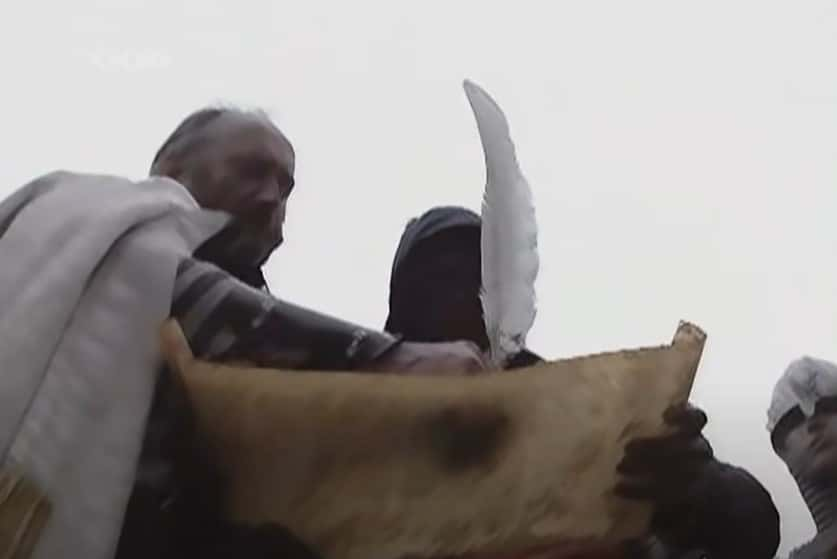 Kings and Queens of England (2004), UKTV History
Kings and Queens of England (2004), UKTV History
47. He Had Many Lady Loves
During his travels after his mother’s passing, Curthose jumped into bed with several different women from all walks of life, and ended up siring several illegitimate children. At least two of them met with early and tragic ends, but one of his illegitimate daughters eventually married Helias of Saint-Saens, who eventually became one of Curthose’s most loyal supporters. Worth it?
48. He Had A Regrettable Name
According to some historians, William the Conqueror never really took a liking to his oldest son, and it shows in his name. The word “Curthose” has its origins in the Norman French word “courtheuse,” meaning “short stockings,” and was apparently an unflattering nickname given to Robert Curthose by his dad. Not exactly a good way to strengthen the bond between father and son!
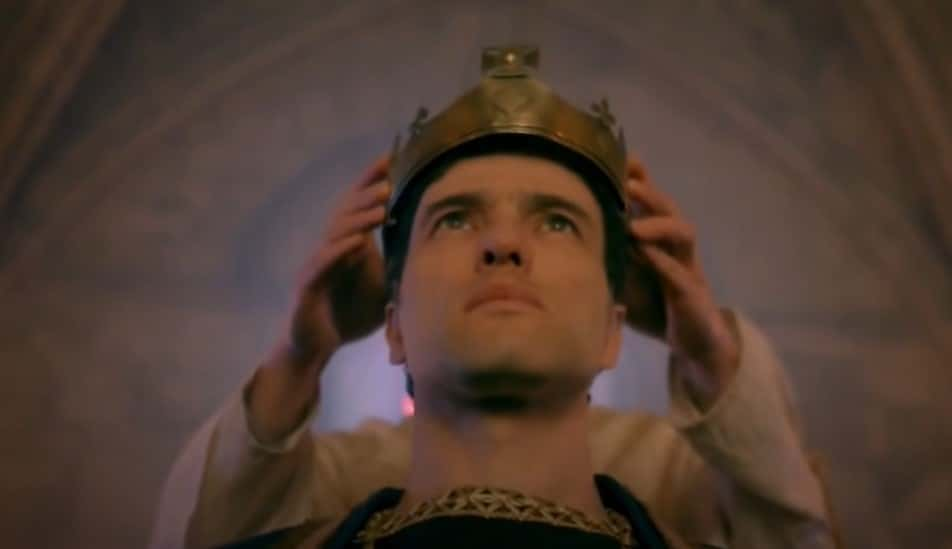 1066: A Year to Conquer England (2017), BBC
1066: A Year to Conquer England (2017), BBC
49. His Mom Gave Him Everything
While Curthose was rebelling against his father, he received aid from all sorts of people. His most surprising supporter came in the form of his own mother, who secretly sent him money from her own funds. When Curthose’s dad confronted her about it, she declared that she would happily give her life to Curthose. Talk about a supportive mom!
50. He Had A Suspicious Ally
Some sources say that King Philip actually encouraged Curthose’s rampage across William the Conqueror's lands, even while he was William's ally—or at the very least, he turned a blind eye to it. In addition, King Philip made the very suspicious move of giving Curthose the use of Castle Gerberoy before the end of 1078, where Curthose spent much of his time receiving his followers and securing their support.

